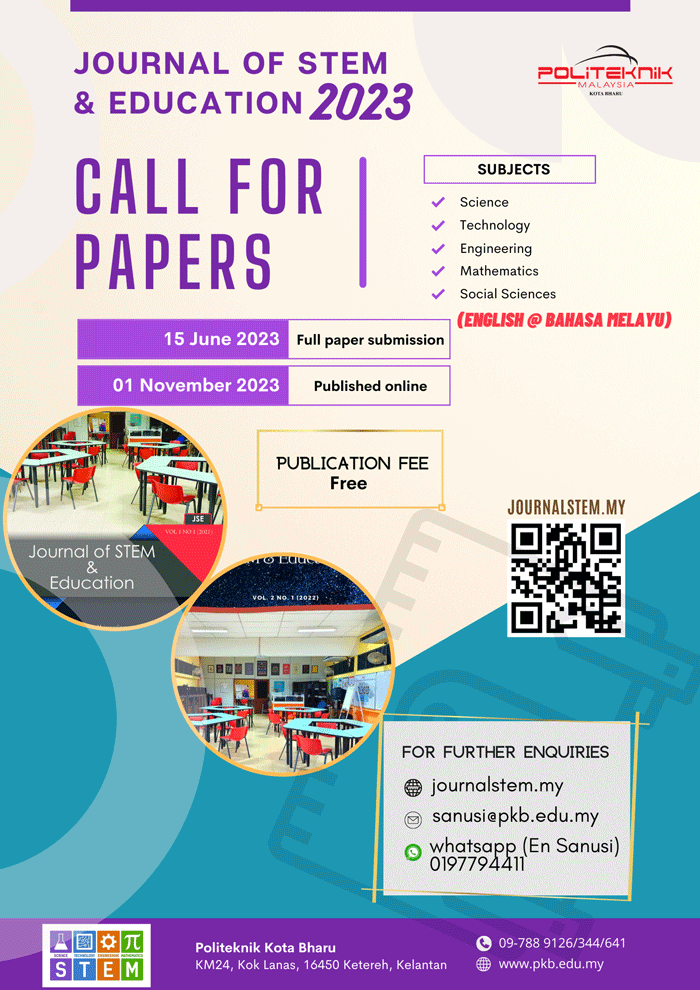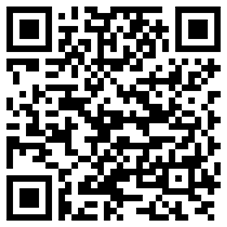Publication Ethics
1.1 Authors’ Responsibility
Authors should submit original work carried out honestly according to scientific standards. Research results should not have been obtained fraudulently or dishonestly, fabricated, or falsified. When writing the Authors should present a concise and accurate account of how the work was carried out. There should have enough detail for other researchers to repeat the work. The data should be accurately reported and never fudged. The Authors should not leave out problematic data so as to provide a clear story. The Authors should not claim originality if others have reported similar work. All information obtained privately should not be used without explicit permission from the individual or source.
1.2 Originality
Authors who submit a manuscript to The Journal must ascertain that the manuscript is their original work and has not been submitted elsewhere simultaneously. The Authors should also declare that the work and its variation have not been published elsewhere prior to submission to The Journal. Materials from other sources or publications must be appropriately cited or quoted whenever it is used in the submitted manuscript.
If the manuscript contains materials that overlap with work that was previously published, or is in-press, or that is under consideration for publication elsewhere, the Authors must cite
this work in the manuscript. The Authors must also inform The Journal Editor-in-Chief of the related work, the Editor-in-Chief may request a copy of the related work.
A manuscript that is under review by any other journal must be withdrawn from the other journal, prior to submission to The Journal.
Authors must explicitly cite their own earlier work and ideas, even when the work or ideas are not quoted exactly in the manuscript. If exact sentences or paragraphs that appear in another work by the Authors are included in the manuscript, the material should be reworded and appropriately cited.
Authors are not allowed to resubmit a manuscript to The Journal that was previously reviewed and rejected by The Journal unless encouraged by the Editor-in-Chief to resubmit in the rejection letter. If an earlier version was previously rejected by The Journal, and the Authors wish to submit a revised version for review, this fact and the justification for resubmission should be clearly communicated by the Authors to The Journal’s Editor-in-Chief at the time of submission.
To speed up the peer review process, Authors is strongly suggested to submit the manuscripts for publication in The Journal to check their manuscripts for possible plagiarism using any anti-plagiarism software before submitting it to The Journal.
1.3 Plagiarism
Manuscript submitted to The Journal must not contain any form of plagiarism including self-plagiarism. The manuscript should not contain any materials that are falsified and fabricated. The Authors should ensure that they have written entirely original works, and if the Authors have used the work and/or words of others that this has been appropriately cited.
Plagiarism can be in the form of claiming others’ paper as the Author’s own paper; using or paraphrasing substantial parts of another’s paper without proper credit. Claiming results from research others as Authors’ own is also a form of plagiarism.
The use of others' published and unpublished ideas or words or intellectual property without proper citation and permission, and claiming them as an original idea rather than derived from an existing source can be construed as plagiarism. This applies whether the ideas or words are taken from any published or unpublished materials including abstracts, proceedings, grant applications, journal articles, books, or any other publication format.
Authors must cite others' work and ideas explicitly, even if the work or ideas are not quoted exactly or are being paraphrased. This applies to previous work published or unpublished in any form.
Self-plagiarism (or ”redundancy”) includes reusing portions of previous writings by using identical or nearly identical sentences or paragraphs from earlier writings in a research manuscript, without quotation or acknowledgement. Authoring several manuscripts that are slightly modified from each other and submitted for publication in different journals without acknowledgement of the other manuscript/articles is also a form of self-plagiarism.
Self-plagiarism is not generally regarded in the same light as plagiarism of the ideas and words of other researchers. Self-plagiarism can be minimized or avoided by citing Author’s previous publications wherever appropriate.
Plagiarism is misconduct and unacceptable publishing behaviour that may lead to serious consequences for the Authors. In order to avoid plagiarism Authors should:
- keep all records of the source of information,
- put quotation marks for any phrase that are used in verbatim and cite the source,
- use their own words when summarizing or paraphrasing someone else’s paragraphs together with a proper citation, and
- cite all sources as much as possible when writing a
- give proper acknowledgement of the work of others must always be
- cite publications that have been influential in determining the reported
1.4 Parallel or Multiple Submissions
Authors should not submit manuscripts describing essentially the same research results to more than one journal at a time. Submitting the same manuscript to more than one journal at a time constitutes unethical and unacceptable conduct.
Authors must not submit a similar manuscript or research results, in whole or in part, to more than one publication simultaneously, or at any time while the manuscript is currently under review.
Resubmission of a manuscript after being rejected or withdrawn from another publication is acceptable. Authors may not submit to The Journal a manuscript that is in whole or in part under review elsewhere, nor submit to another publication a work that is in whole or in part under review at The Journal.
The submitted manuscript must not have been previously published or accepted for publication elsewhere, or under review by other publications, either in whole or in part in any language.
1.5 Publication from Conference Proceedings
The Journal does not accept any submission of a manuscript that has been published in full in a conference proceeding. This is because novelty is an important criterion for articles published in The Journal. The Editor-in-Chief may consider unpublished work that has been presented in part in any forum, particularly if the circulation of the proceeding is limited. Authors must clarify during submission the significant material that was added in the manuscript that was not included in the proceedings. The proceedings must be properly cited in the submitted manuscript.
1.6 Conflicts of Interest
An Author should avoid conflicts of interest or the appearance of conflicts of interest in his/her research conduct and publication. Conflicts of interest may influence the judgment of Authors, Reviewers, and Editors. Possible conflicts often are not immediately apparent to others. These may be personal, commercial, political, academic, or financial in nature.
All Authors should disclose in their manuscript any financial or other substantive conflict of interest that might be construed to influence the results or interpretation of their research results. All sources of financial support for the project should be disclosed in the manuscript.
1.7 Suggestion for Reviewers – Conflict of Interest
When submitting a manuscript to The Journal the Authors are encouraged to recommend up to three possible potential Reviewers. The suggested reviewers must not be from the same institution as the Authors. The Editor-in-Chief is however not bound by these suggestions.
Authors should avoid any possible conflict of interest, or appearance of conflict of interest, in selecting Editors and Reviewers. Authors should not submit a manuscript to an Editor who is not in the same field as an easy way to get published.
1.8 Authorship Conduct
1.8.1 Change of Authorship
Name of Authors listed in the manuscript should those who have made a significant contribution to the conception, design, execution, or interpretation of the research. All those who have made significant contributions should be listed as Co-Authors. Others who have assisted in certain aspects of the research project can be mentioned in the Acknowledgement.
Authors of a manuscript should nominate only one Author as the corresponding Author who is solely responsible for communicating with The Journal and communication between Co- Authors. Authors included in the authors list must agree to the order of the names and that all Authors agreed with the final form of the manuscript being submitted to The Journal
1.8.2 Change of Authorship
Once The Journal accepts a manuscript for publication, amendments in the authorship in the form of addition, deletion or rearranging the order of the names are no longer allowed. However, changes in the authorship (addition, deletion or rearrangement) can be made during the review process before a manuscript is accepted.
1.8.3 Affiliation
The affiliation for each Author should be the institution where the majority of the work was performed. If an author has subsequently transferred to another institution, the new address may also be included in the manuscript.
1.8.4 Co-Authorship
All Co-Authors should have made significant contributions to the work being written and share accountability for the manuscript. All Authors should agree with the final version of the manuscript before submission to The Journal.
1.9 Permission and Copyright
Authors should check their manuscripts for the need to obtain permission due to copyright law. This may include permissions for quotations, figures, photographs, artwork or tables taken or modified from other publications or from other sources on the Internet. Authors need to secure the necessary permissions before submitting to The Journal. Permission may be needed from the publisher and the Authors of the published materials. If using their own materials that have been published by another publisher, the Authors need to obtain permission from the publisher only. It is the duty of the Authors to obtain permission and not The Journal.
1.9.1 Copyright of Published Articles
Politeknik Kota Bharu (PKB) holds the copyright to all published articles in The Journal. The Author(s) should submit the Copyright Transfer form to the Editor-in-Chief once the manuscript has been accepted for publication.
Authors must seek permission from The Journal to publish in whole or in part their articles that have been published in The Journal in another publication.
1.10 Manuscript Withdrawal
Authors may write to the Editor-in-Chief requesting for the withdrawal of a manuscript that has been submitted to The Journal. However, such withdrawal is usually permitted within two weeks from the date of initial submission to The Journal. The reason for the withdrawal is required in writing.
In the event that an Author discovers a significant error or inaccuracy in his/her own published work, it is the Author’s obligation to promptly notify the Editor-in-Chief or publisher to retract or correct the article accordingly.
1.11 Timeliness
Authors should be prompt with their manuscript revisions. If an Author cannot meet the deadline given to complete the revision, he/she should inform the Editor-in-Chief to request an extension.
Editorial Board members: Journal’s reputation depends heavily on the conduct and fairness of its Board members. The Editorial Board members shall demonstrate their dedicated efforts to this effect at all times. Complainants shall bring cases of suspected members’ misconduct to the attention of the Editor-in-Chief who shall ensure that the relevant documentation substantiating an unacceptable violation of publication ethics is made available to the Journal’s Editorial Board and PKB Publication Board for a suitable action. Any member who holds an editorial office at The Journal with proven unethical conducts will be dismissed from that office. Additionally, penalties would typically include sanctions as in the case of Authors found guilty.





